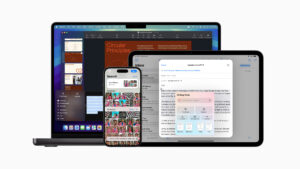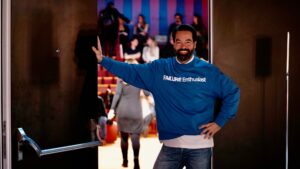Maria Atanasova: Authentic Leadership Will Be The Number One Employee Perk In The New Normal
Ever since we were faced with the global pandemic situation we are talking about new normal, which spreads pretty much across all spheres of our lives – from what we do online to how we conduct business and, of course, working is also a huge part of it. With the new remote mode and not only we see the relationship between companies and teams changing. But ‘how exactly’ is an interesting question.
To discuss this we’ve invited someone with quite an extensive experience on the matter of human capital. My guest today is Maria Atanasova, the Human Capital Director, Europe Middle East, and Asia at Progress, responsible for the overall employee experience and HR development in three major offices (Bulgaria, UK, and the Netherlands). Maria has been part of the HR team at Progress, and Telerik back then, since 2010. After Progress merged with Telerik in 2014, Maria took the role of a Global Human Capital Business Partner for the entire Progress engineering group or about 800 people. Maria has extensive experience in the full spectrum of human capital management, as well as in leading the research, assessment and development of key global company initiatives such as Progress employer branding, global talent acquisition philosophy and candidate experience journey. Maria was also part of our BIG Reset conference where she spoke about the employee value proposition. In this interview, we are exploring the topic in a bit more depth.
Trending Topics: You grew from a trainee to a director position, first in Telerik then in Progress. You are probably one of the few people who really know the organization from the inside. During the Big reset, we heard you speaking about the Employee Value Proposition. Can you explain the concept and how it differs from corporate values?
Maria Atanasova: One of the major accomplishments of the big employer branding initiative we started in 2017 was exactly creating this employee value proposition (EVP). I’ll take a step back and share a little bit about the vision of employer branding and how EVP fits into that. Employer branding is a concept that has been quite trendy in Bulgaria for the past couple of years and different companies are approaching it in a different way. In my mind, employer branding is a combination of at least two elements. The one is the image of the organization, how a company portrays itself outside – this is the controllable piece and could be achieved via different channels including social media presence. But there’s another important aspect, which is the reputation of the company – what people talk about, share about the company that is outside of your control. When we started exploring employer branding, one of the major findings that struck us was the concept of employee value proposition. This is our employer part of the contract, this is in a way what we promise you to find with us regardless of the team you start to work with or the office and the location.
On the other side, the corporate values, or as we call them at Progress maxims, are the behaviors that are respected by everybody across the company, these behaviors formulate the culture. This is the promise of the people in the company to us. So, in my mind, EVP and corporate values are the two sides of one coin.
So what is the EVP at Progress?
Well, it was a long journey of development. I have to say, first of all, the EVP was built from the ground up. We have three pillars on which we base everything. The first is teamwork over individual brilliance. The second is transformation is in our source code, meaning that we as a company and the industry in which we are, changes and evolves constantly, and so we do. Vesko Kolev, our VP of Product in Sofia, talks a lot about the growth mindset and innovation, which are definitely embedded in this transformation. The last piece is even the best keep getting better. At Progress, we make sure we hire the best talent, but even the most talented and skilled ones should expect to be getting better. You work with the best so you should be able to be humble, whenever possible, and keep learning and excelling your skills.
Oftentimes, however, especially in the IT sector, the HR department is underestimated. What makes you feel a valuable part of the company and what do you enjoy about your work?
I think the reason to stay at Progress for so many years is exactly the way I feel – a professional and the way my whole team is perceived in the company. The human capital department here is a true partner for the employees. Yes, we learned a lot in the years and took a lot of feedback, and still validate everything we do with our people. The biggest value an HR can bring to the people is to deliver what they need and what is relevant to them, not what is trendy somewhere. We do a lot of workshops as people signal they want such. Throughout the years, Vesko and I grew up together in the company, and he has always challenged me with his engineering mind and asked me why an initiative should be important to him. The way we launch our programs in the Human Capital team is the same way the engineering team launches products – we talk about customer persona, go-to-market plan, communications plan, etc. We borrowed a lot about this.
Back then in 2014/15 when Telerik became part of Progress, you have been part of a rather exciting period for a company – a total rebranding. Can you share a bit more about how it was from the inside? How did you approach the situation from the perspective of organizational development?
It’s one of those moments in my career that I remember vividly. It was a big learning point for everybody. It was an acquisition deal but inside, from the perspective of integration and organizational development, we approached it as a merger, because we were two teams of almost similar size – Progress around 900, and we were about 750. We gave it some time, we looked at the practices and programs in each organization. We took a year and a half to see how we can best work with what the two organizations are bringing. It was a challenge, even from the perspective of employer branding. At that point in time we were also going through strategic changes, innovation changes, etc., and we were clearly hearing the identity crisis that people were experiencing. We went through two rebrandings and people inhouse and on the outside were asking what is the difference and what has changed.
I remember in 2016, and the beginning of 2017, we have this annual engagement survey that measures different factors within the company, employer branding being one of these factors. At that point, only 46% of the people were understanding who we are and knew what the image of the company is. So we had a huge gap and we had to start working on it. It was nine months of research, conversations with employees, and a lot of workshops to identify the EVP. Indeed, one of the main factors for good EVP is to be really true. It shouldn’t be inspirational, it should be true and sustainable regardless of the products we develop and the CEOs that come on board. I’m happy to say that this year, 2020, this factor is 86%.
Without alignment with the organizational culture, there is much that can go wrong. Probably not everything went smoothly as expected. So, how much can you share about the failures you have gone through and how did you tackle them?
As the company is a living organism we also need to update ourselves all the time. When we completed the employer branding project and started launching the EVP internally and training our managers, we found out that we have something that we call ‘our blessing and our curse’ at the same time. Through validating our policies and processes, so that they are in accordance with the EVP, we saw something strange about our internal mobility policy – the internal applications for different positions and career transformations policy. We realized that the teamwork, which is fundamental and our DNA at Progress, is also the blocker for internal mobility. Some people were telling me that they would feel like traitors to their teams for changing for another product. There was a point at which people felt more comfortable leaving the company instead of disappointing their managers and teams. We started working a lot with the managers and making sure that people start feeling comfortable with transitions. I’m happy to say that we are past this point now, but it was a process.
What type of leadership do you foster within Progress?
The biggest descriptor of leadership at Progress is authentic. We partner and support managers to uncover their authentic self – what’s their experience, what is their professional personality, and also understand the authenticity of the people they manage. We’ve created a program that supports managers in leading self – understanding myself as a leader, leading the team and managing the team, and leading the organization. Regardless of what management level you are, we believe that you should always be looking at how you can step it up and think of the bigger picture. This is also what is helping us today in the pandemic too. The managers know their people and understand their needs. Especially now the balance between professional and personal is so thin, that you as a manager need to have a look not only at the skills and the level of your employees but also how you can support them beyond that.
Just before the lockdown, we had a very interesting discussion hosted by Trending Topics under the title: “Ping-pong tables and office massages are nice, but…” Actually, we talked much about what motivates the best talents to work for a certain organization. In this regard, and also given the new situation, what do you think are and will be the employee benefits and perks that would really matter?
In today’s situation, when the office is not exactly relevant, it turns out that people need different things to stay engaged and stay productive. I think the leadership that I mentioned is critical here, for managers and leaders to be able also emotionally to understand the situation. The other piece we see now is mental health support – providing employees with webinars and other formats to help them deal with the ambiguity, handle the unknown, and handle the lost balance. And one of the pieces that are really important is our kids’ center – we have it in the building free for employees and usually, around 60 kids come, and it has transitioned to a digital space. I think that the fact we had the teachers entertaining the children even for a couple of hours helped a lot. So to sum it up, I think from now on we will be talking much more about not only helping employees handle the workload but also provide more support for the humans behind the job descriptions, provide them with the relevant support to make sure they balance also in the time outside of work.




























